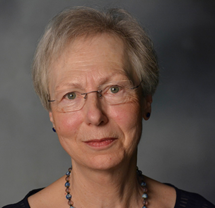Language interference: Forewarned is forearmed
Joy Burrough-Boenisch, the Netherlands
People who speak several languages fluently are at risk of one language interfering with another when they write or speak, especially if the languages are closely related. As language interference is therefore likely to crop up when someone writes in their second (or third) language, language professionals need to know about it so they can recognise and deal with its manifestations in non-native-speaker texts. But language professionals living and working outside their native- language country are themselves susceptible to language interference. So, awareness of how one language can interfere with another is important for language professionals for two reasons: it improves their approach to editing non-native-speaker texts and, if they’re expats, it makes them vigilant about language interference when they write or speak in their own native tongue.
The presentation will draw heavily – but not exclusively – on examples of interference from Dutch and will focus on types of language interference in written English. It will go beyond false friends and literal translations and explore less obvious transfers from one language to another. Strategies for dealing with language interference will be discussed and the audience will be invited to share experiences. The presentation will be relevant to editors of non-native English and to language professionals at risk of language interference permeating their own writing and utterances.
Click here to register for the online conference
About the presenter

Joy Burrough-Boenisch (MITI) is a founder member and past chair of SENSE with a long career as a freelance authors’ editor and translator for Dutch academics and scientists. She has taught scientific English to graduate students and has presented webinars. She has given workshops for language professionals on editing non-native English in various European countries and for the European Commission. Her conference presentations include two in 2018 as an invited speaker at ATA’s New Orleans conference. Originally a geographer, she learnt to edit in Borneo and Australia before moving to the Netherlands, where her interest in second-language interference and non-native English resulted in a PhD thesis on Dutch scientific English. As well as being the author of Righting English that’s gone Dutch (3rd ed 2013), she has various scholarly and professional publications on editing and non-native English to her name.
